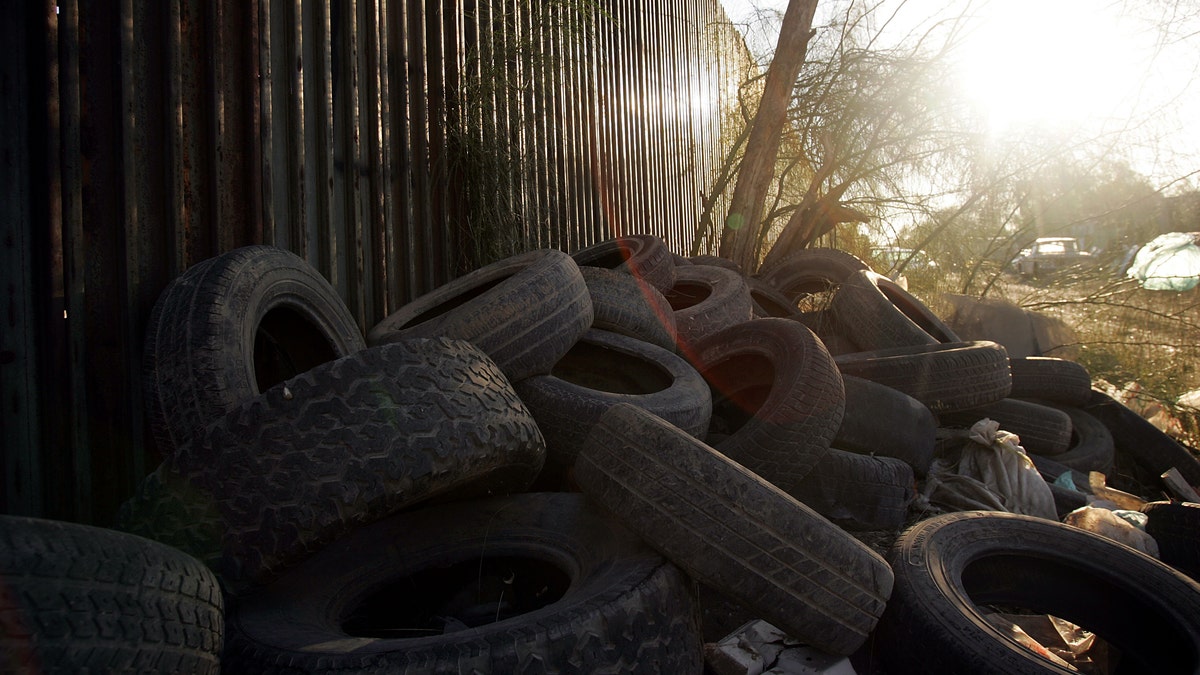
Old tires lie discarded along the Mexico side of the U.S.-Mexico border fence March 25, 2005 between Mexicali, Mexico and Calexico, California. (2005 Getty Images)
An estimated million tires line the streets of Baja California, Mexico. They’ve been lying around for years: in Baja’s waterways, canyons and highways, not only destroying the environment but harboring disease-carrying mosquitoes.
For the past two and a half years, Wildcoast, a nonprofit organization that seeks to conserve coastal and marine ecosystems along the U.S.-Mexico border, has been pushing to address the issue. Last month, with funding from the state of California, Wildcoast begun a one-year pilot program to collect tires and recycle them into new products.
The pilot program seeks to collect as many tires as possible, shred them and turn them into bricks, artificial grass, swings, asphalt and shoes.
“These tires are everywhere,” Fay Crevoshay, the group's communications and policy director, said. “They are in the middle of towns, in the streets, in the waterways, in the neighborhoods where children play. We’re worried about Zika, and we’re worried about the ocean and the whole ecosystem close to the ocean.”
The tires, which for the most part originate in California and are then sold to Mexico, pollute the Tijuana River and flow back into the United States, ending up in federally-protected areas including the Border Field State Park and the Tijuana River National Estuarine Research Reserve.
In Mexico, these tires pile up in large mounds in urban areas, while in the United States the tires get buried in the mud.
“We don’t even know how many meters down you have plastic tires in the mud," Crevoshay said. "It’s like a cake, you don’t know how many layers there are.”
According to Crevoshay, discarded tires get clogged with sewage and dirty water. Especially in the summer months, the heat and humidity create an environment that’s perfect for mosquitoes, which can increase the incidence of diseases like dengue, yellow fever and Zika.
Wildcoast is partnering with both the public and private sector to carry out the initiative.
The nonprofit contracted a Mexican company, Promotora Ambiental de la Laguna, to pick up the tires and shred them. Another company, Eco Commodities, is in charge of selling the shredded material to other companies who can turn it into new products.
“We hope to create a new market,” said Crevoshay.
Just last week, the nonprofit received the permit from the government in Mexico to begin collecting tires in Baja California.
If the pilot program is successful, Wildcoast would like to expand into other regions along the border.
“Hopefully, some day ... all tires will get recycled into other products, and no tires will be burned or buried in landfills,” Crevoshay said “That is the vision.”
